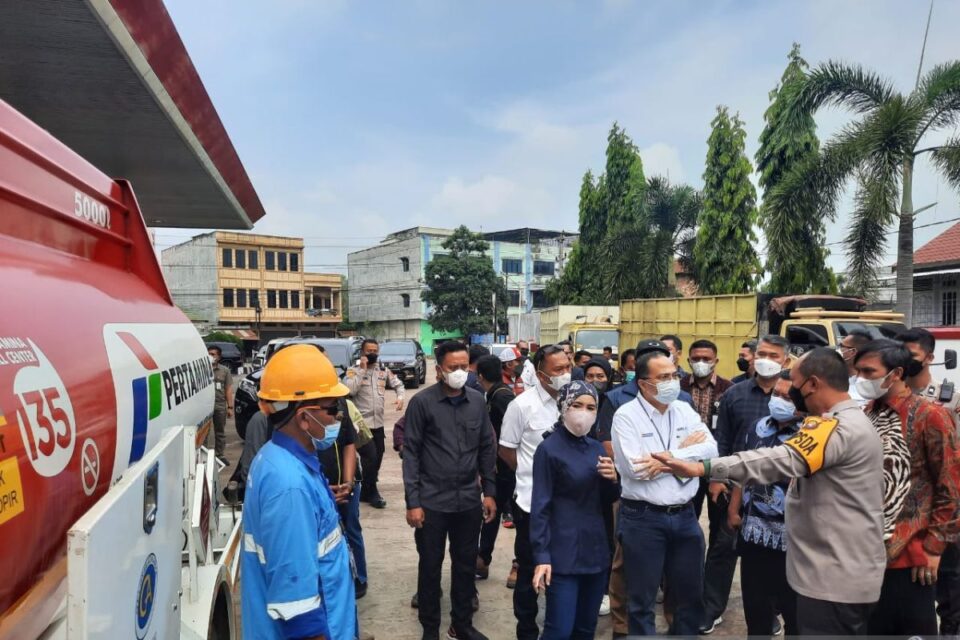Introduction
In today’s interconnected world, where humanitarian efforts are becoming increasingly critical, the Korps Sukarela (Volunteer Corps) plays a pivotal role in ensuring that communities in need receive vital support. The spirit of volunteerism, embodied by this organization, helps bridge the gap between those who can offer assistance and those in dire need. As the scope of humanitarian needs grows globally, so does the importance of Korps Sukarela, which works tirelessly to aid during natural disasters, social crises, and other emergencies. This article delves deep into the history, purpose, and impact of the Korps Sukarela, examining how its efforts contribute to the welfare and upliftment of society.
What is Korps Sukarela?
The Korps Sukarela, or Volunteer Corps, is a collective of individuals committed to serving the community through voluntary efforts. It typically involves a group of people, often associated with large organizations like the Indonesian Red Cross, who dedicate their time, resources, and skills to assist in various humanitarian missions. This corps focuses on areas such as disaster relief, emergency medical aid, community welfare, and environmental preservation.
Their voluntary nature sets them apart from government-run aid organizations, as they primarily rely on the goodwill and dedication of volunteers who are driven by a sense of duty and service. These volunteers often undergo specialized training to prepare them for high-stress environments, ensuring they can respond effectively in times of crisis.
The Historical Roots of Korps Sukarela
The concept of voluntary service has long-standing roots in many cultures worldwide, but Korps Sukarela has its own unique history, particularly in regions like Indonesia. Initially established to bolster the efforts of humanitarian organizations, such as the Indonesian Red Cross, the Korps Sukarela quickly gained prominence during times of crisis.
During major events like the 2004 Indian Ocean tsunami and the 2010 volcanic eruptions, the Korps Sukarela became indispensable in mobilizing quick relief operations. Their ability to respond rapidly, often working alongside international organizations, highlighted their importance. Over the years, their services have expanded to cover various domains, from healthcare initiatives to social advocacy programs.
The Key Missions of Korps Sukarela
1. Disaster Relief
One of the primary missions of the Korps Sukarela is to provide immediate relief during natural disasters. This includes coordinating efforts such as search and rescue operations, providing emergency shelter, distributing food, water, and medical supplies, and helping displaced populations. By being among the first on the ground, the Volunteer Corps helps mitigate the devastating impacts of disasters on affected communities.
Korps Sukarela volunteers often receive specialized training in disaster management, ensuring they can act efficiently under pressure. They collaborate with both local and international organizations to streamline their efforts, ensuring that resources are maximized and distributed effectively.
2. Healthcare and Medical Aid
Another key function of the Korps Sukarela is providing healthcare services, especially in underserved and remote areas. Volunteers with medical backgrounds work to deliver crucial health interventions, such as vaccination drives, mobile clinics, and emergency medical care in times of need.
In addition, the Volunteer Corps plays a vital role in health education. Through campaigns focused on hygiene, disease prevention, and maternal care, they empower communities to take charge of their own health. By raising awareness about crucial health issues, they contribute to improving public health outcomes, especially in areas with limited access to medical facilities.
3. Environmental Preservation
As environmental concerns take center stage globally, the Korps Sukarela has broadened its focus to include environmental conservation and protection efforts. They organize tree-planting drives, clean-up campaigns, and environmental education programs aimed at fostering sustainability in local communities.
Volunteer efforts in this domain not only contribute to immediate benefits such as cleaner surroundings but also aim to instill a sense of responsibility toward the environment. In a world facing climate change and ecological degradation, the role of Korps Sukarela in promoting sustainable practices is more important than ever.
4. Social Welfare and Advocacy
The Korps Sukarela is also deeply involved in social welfare activities. They support initiatives targeting vulnerable populations, such as the elderly, children, and individuals with disabilities. Through various outreach programs, they work to improve living conditions, provide basic necessities, and ensure access to education and healthcare.
Advocacy is another key pillar of their efforts. The Korps Sukarela often engages in campaigns promoting human rights, gender equality, and social justice. By raising awareness and creating platforms for dialogue, they help bring critical issues to the forefront, fostering a more just and equitable society.
Challenges Faced by the Korps Sukarela
Sustainability of Resources
One of the primary challenges faced by Korps Sukarela is the sustainability of resources. As they rely heavily on donations and volunteer participation, maintaining a steady flow of financial and human resources can be challenging. In times of large-scale disasters, the demand for assistance can far exceed the available resources, putting additional strain on the organization.
Volunteer Retention and Training
Given the demanding nature of their work, retaining volunteers over the long term is another challenge. The Korps Sukarela often requires intensive training to ensure that volunteers can respond effectively in crises. However, keeping volunteers engaged and prepared for deployment during non-emergency periods can be difficult. Continuous investment in training programs and maintaining volunteer morale are key factors in overcoming this challenge.

